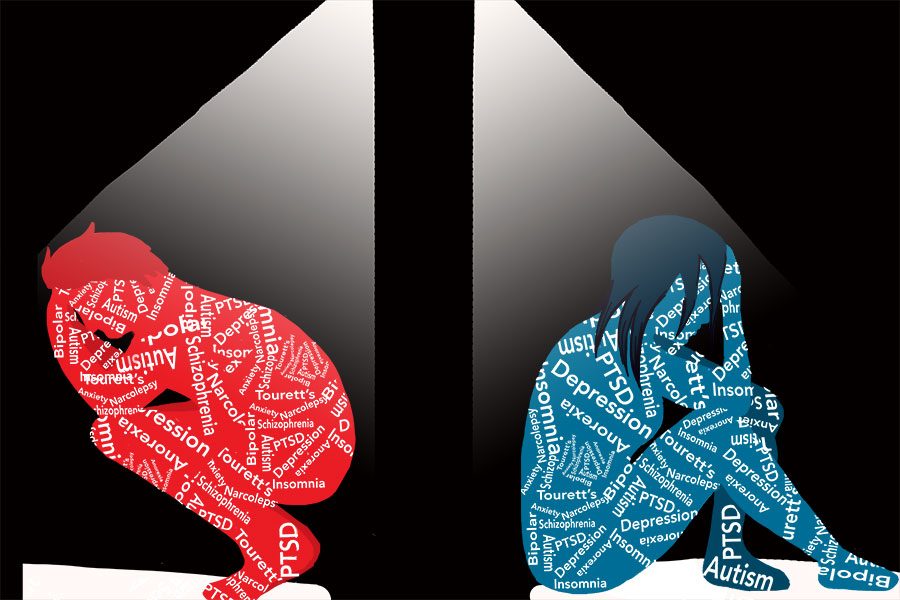Stigmas prevent the discussion of mental illnesses
October 17, 2016
For too many years, mental illness has been an elephant in the room at home, in the workplace and at school. It has become a taboo subject with media, schools and the general populous.
We as the editorial board feel that this needs to change. Mental health should be a subject frequently talked about and given the opportunity to be accepted by everyone.
It seems like the only time that mental health issues make it into the news is after some kind of mass shooting takes places.The talking heads will point fingers back and forth about what the cause is: (1) lack of gun restrictions (2) lack of mental health screening. And once something else takes over the headlines, the issue disappears from the national discussion and nothing happens.
Media will cover mental health, not because they care or because they are trying to create a solution to an issue or inform people about something. They will cover it to scare or make people misunderstand those who suffer from mental health disorders. Media will create this ta- boo, or wall, around the situation and make people feel outcasted or like they have no one to talk to about what they are going through.
The teenage years of a person’s life is a breeding ground of stress and a constant feeling of rejection or letting themselves or others down. These situations that teens are placed in can easily lead to depression, or the worsening of depression they already suffer with. Accord- ing to Colleen Arnold “The SSS office provides support to students daily who experience anxiety and/or depres- sion. We typically serve 800-1,000 students each school year. Not all of these students have diagnoses of anxiety or depression but many experience these emotions at times throughout the school year.”
The discussion needs to extend beyond the news me- dia. Conversations need to happen in families, among co-workers and even in classrooms. It’s a difficult topic, but it’s a conversation that needs to happen so that every- one understands that mental health problems are more common than they think.
A perfect time would seem to be in health classes when they discuss the signs of students who might be suffering from a mental illness. Students need to know how to assist someone who is suffering from certain problems.
Thankfully, some teachers and student organizations are attempting to take steps to support students who suffer from mental illnesses. A club called “Endurance for Life” is basically a support group for students after school, held by the sponsor teacher Georgiana Morell. The club happens every Monday after school in her room, but the meeting is actually run by a student who wants to help students who su er from severe anxiety.
We need to get the stereotypes that surround mental illnesses. Far too often is mental health made into a joke or not taken seriously. People often joke about mental illness like it is trivial. Or far too often are people bullied for having a mental disorder. The fact that someone suffering from depression or someone who has committed self harm is bullied and called “emo” is disgusting and appalling.
But where there is ignorance there is something to be learned from. We applaud the work of Yesenia Castelan and the other students in “Endurance for Life” that are brave enough to take on these issues. Akins has a number of support groups of all varieties. Sponsors and teachers across our campus spend much of their time trying to help students, during and after school.
We as the editorial board believe that mental health disorders should not be a subject people are afraid to address. Others should not be judged for su ering from mental health disorders and that anyone should be willing to assist another when they need it.







